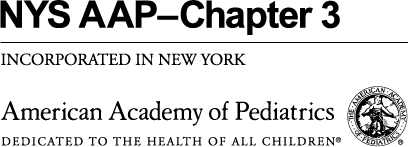Non-medical vaccine Exemption Legislation Statement
Immunization Resources
Centers for Disease Control and Prevention National Immunization Program
General information about all vaccines, immunization issues, VISs in English, updates on vaccine supply issues, links to many other sites including MMWR, ACIP statements, The Pink Book “Epidemiology and Prevention of Vaccine Preventable Diseases”.
Centers for Disease Control and Prevention Travel Information
Comprehensive information about travel-related health issues defined by geographic region with links to information about travel medicine clinics.
Citywide Immunization Registry (CIR)
The website for the Immunization Registry, a confidential computer system for tracking of vaccines given to children in NYC.
New York City Department of Health and Mental Hygiene (NYC DOHMH)
General information about all NYC DOHMH resources.
NYC DOHMH Bureau of Immunizatio
The website for the Bureau of Immunization.
New York State Department of Health
General information about all vaccines and immunization issues.
Allied Vaccine Group
A network of associated organizations
Childhood Immunization Support Program
A resource from the American Academy of Pediatrics – Information about vaccines and their use with a focus on safety issues
Hepatitis Programs
Hepatitis related information – an initiative of the Immunization Action Coalition
Immunization Action Coalition
Information for professionals and consumers about all aspects of immunizations. Many resources available that can be downloaded FREE – including VIS in over 20 languages.
Institute for Vaccine Safety
Provides an independent assessment of vaccines and vaccine safety to help provide physicians and the public about key issues surrounding the safety of vaccines
National Network for Immunization Information
- Infectious Diseases Society of America
- Pediatric Infectious Diseases Society
- American Academy of Pediatrics
- American Nurses Association
Meningitis B Action Project
This web site contains helpful materials and resources to help in educating parents and young adults about Meningitis B, including a poster specifically for doctor’s offices. The message is simple: It takes two types of vaccines to be fully immunized against meningococcal disease: MenACWY and MenB. While many have received the MenACWY vaccine, few have received MenB due to lack of awareness of its availability. The site hopes to provide parents and young adults with the information to proactively talk to their healthcare provider about Meningitis B and the vaccine available to help prevent it, and to encourage the medical and education community to inform patients and students about the availability of the Meningitis B vaccine.
MMR The Facts
Information from the United Kingdom about MMR vaccine
Vaccine Adverse Event Reporting System (VAERS)
A national program of the CDC and FDA for post marketing safety surveillance collecting information about adverse events or possible reactions to vaccines
Vaccine Education Center at CHOP
Provides information about vaccines and the diseases they prevent to the professional and parent. The goals are to dispel some of the common misconceptions and misinformation about childhood vaccines, how and why vaccines work, safety issues, and whether they are still necessary.
Vaccine Information
Provides specific information about individual vaccine-preventable diseases and their vaccines with Q & A, designed for the professional and public. Has links to other web sites and organizations.
HPV Champion Toolkit
The AAP is proud to announce a new resource to the HPV Champion Toolkit: Free downloads of the documentary “Someone You Love: The HPV Epidemic” along with a community viewing guide to help members show this lifesaving film in their practice or community. Narrated by Vanessa Williams, this poignant documentary showcases the lives of five women affected by Human Papillomavirus (HPV), the virus that causes several types of cancer. Their intimate stories shed light on the risks, myths, and hard truths of this widespread epidemic. Approximately 80 million Americans currently are infected with HPV and 14 million people become newly infected each year (CDC, 2018).

